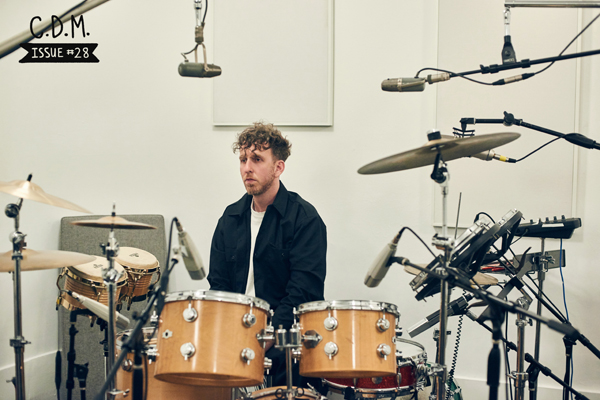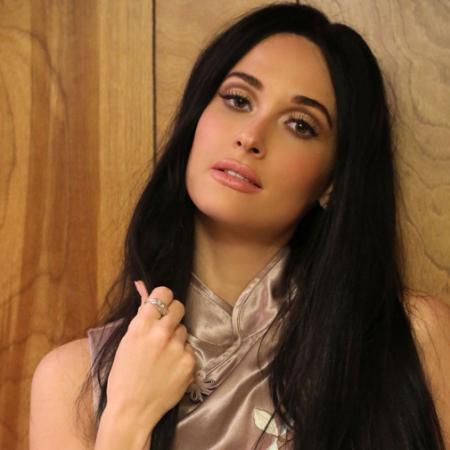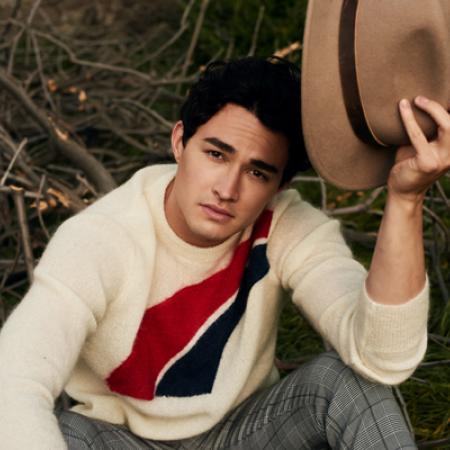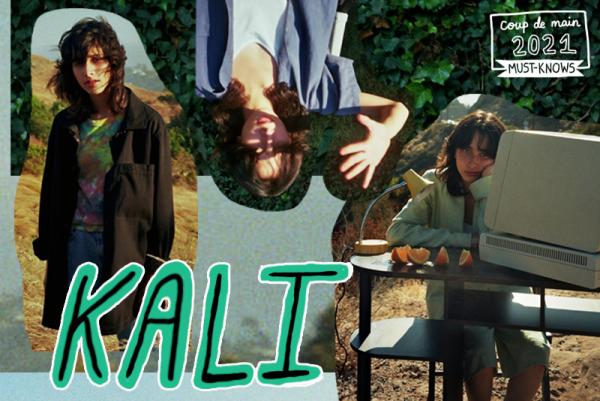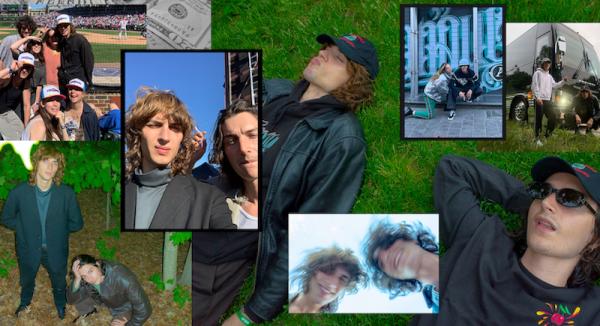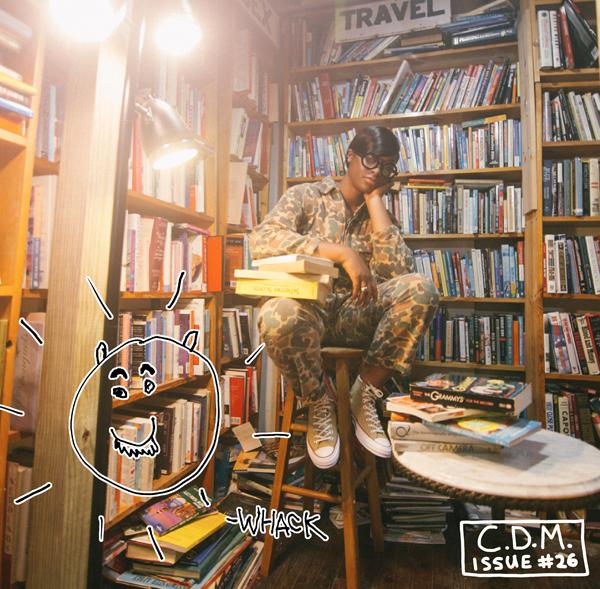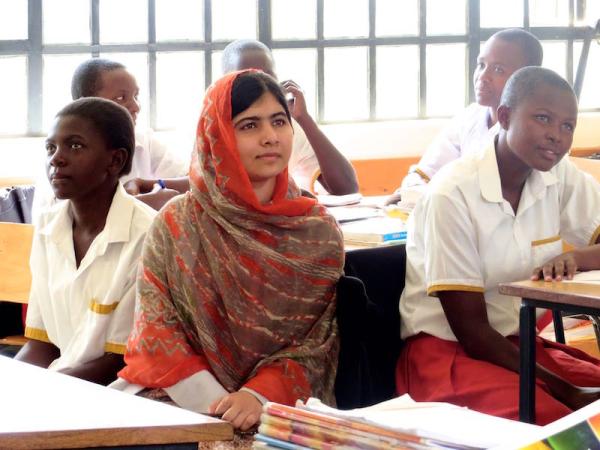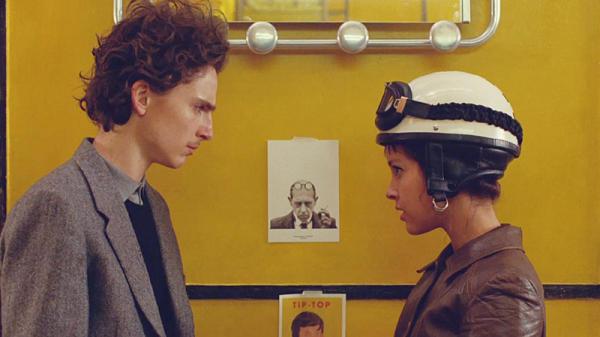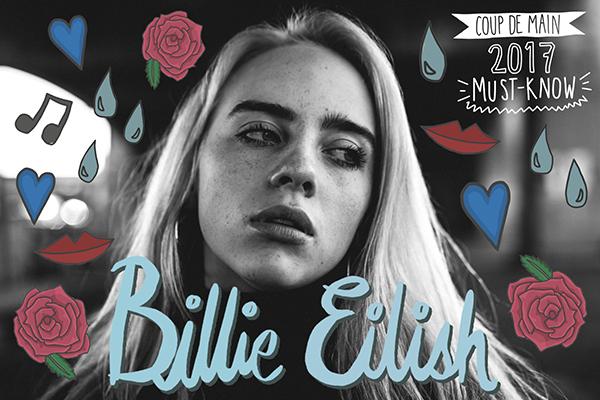It’s a Thursday evening in Burbank, and I’m nearing the end of my interview with one of the most prolific producers of modern times, Ariel Rechtshaid, and it’s somehow turned into a poetry reading of his all-time favourite Carly Rae Jepsen song, ‘Call Me Maybe’.
No words can do the situation justice, but the same could be said of his distinctive yet varying production work over the years, lending his talents in recent times to Vampire Weekend’s ‘Father Of The Bride’ album, Haim’s ‘Something To Tell You’, as well as working in the past with a long list of many of your favourite musicians - Carly Rae Jepsen, Sky Ferreira, Charli XCX, Solange Knowles, Blood Orange, Tobias Jesso Jr., and more.
We spoke with Rechtshaid about the beginnings of his musical career, upcoming Haim music, and the responsibility to do right by the artist in his work…
...I think I’m happier taking chances and failing, than I am playing it safe.

COUP DE MAIN: What’s your earliest musical memory, ever?
ARIEL RECHTSHAID: I’m just gonna freestyle for a second, and see which one of these memories are interesting… My mom was kind of obsessed with me and music from as early as I can remember. I was taking piano lessons when I was way too young to be taking them, like group piano lessons with other kids, and everybody would be obedient and like <plays a scale>, and I’d be like <slams down on random notes>. I remember thinking it was really funny. I have these really vague memories of, ‘This is funny,’ and then suddenly my mom and the teacher were having a conversation and I wasn’t going to the lessons anymore. So my earliest musical memories are kinda sad.
CDM: But then they eventually evolved into happier memories?!
ARIEL: <laughs> Yeah, little by little. I was gaining little bits of musical knowledge over the years, and I eventually met other people who played music and we started making music.
CDM: I can’t believe you went to school with Danny Rukasin - who now co-manages Billie Eilish - it’s wild!
ARIEL: It is kind of a crazy story. We’ve been pretty close throughout the years, and he just took that path. We were teenagers when we were in a band.
CDM: Amazing band name, The Hippos. Who came up with the name?
ARIEL: Me and the original drummer. The band’s existence was like two years. At the very beginning, me and my friend who started it, we had been friends since we were really young and we had an imaginary friend called the Dangerous Hippo, so we had started out a band called the Dangerous Hippos, and then it was too much.
CDM: Was The Hippos your first time being in a musical group?
ARIEL: Yeah, it was the first time I ever tried to play with other human beings in some sort of version of a band.
CDM: At what point did you go from making music and enjoying that process to thinking more about the production of music?
ARIEL: Kind of right then. I was a teenager and I met other kids skateboarding and we started this band. A record label took interest in us and asked us to make an album, and that seemed really far out, but, ‘Sure.’ I would’ve been like sixteen or seventeen. I had pretty intense record knowledge because I was pretty into albums - in middle school I started going to record stores and buying my own albums, I had a pretty wide knowledge of all kinds of albums from punk albums like The Clash or The Dickies, Sex Pistols, all the way to what was happening at the time like Weezer, Rancid, some ska music, Nirvana, and then of course music my parents listened to like Elvis, The Beach Boys, The Beatles, and The Kinks, stuff like that. So I had all these different things in my head, but when we went into the studio to make an album, it was not quite as easy as, ‘That sounds cool, we should make something that sounds like that.’ I was missing a huge part of information and we never really worked with a producer who cared to go down that road with us. I don’t even know if I knew how to articulate, I was literally a blob of Jell-O. <laughs> All I knew is that when it was done, ‘That’s not as good as the music I like,’ which is kind of why I stopped doing that immediately. My plan was to mess around and learn because I was always interested in learning in school, but never once did I think about learning how to record myself, or even how to write better songs, I just didn’t think about it. The band was such a joke and suddenly we were given this opportunity to make a record.
CDM: So you were like, “Oh shit, we have to figure out how to make an album!”
ARIEL: Yeah, and again, I didn’t even think about that. We were making the album in The Beastie Boys’ studio at the time in Atwater Village - there was a half-pipe, and also my favourite band of all-time at the time. It was super inspiring and fun, but when it was done I was like, ‘That’s not it.’ We toured around the world, I learned a lot and it was really cool, but when I came back I was like, ‘I need to chill for a second, and if I’m going to do this, figure out how to do it right.’ In that process, I just got more interested in being in the studio. I tried being in bands a couple more times, but working really hard on ten songs then touring them for two years just didn’t appeal to me - I wanted to keep expanding, and I just found myself much more inspired in the studio than I did on-stage.

CDM: From that point on, was production something you just taught yourself?
ARIEL: Yeah, it was always just practice.
CDM: I feel like production is often seen as such a high-brow thing, but you see people like Finneas (Billie Eilish’s brother) who just taught themselves everything, which is so cool to see.
ARIEL: Totally. And especially now. That there are drum loops that sound like drums that you actually like, available, that is crazy. I was trying to figure out how to make everything from scratch and I was fortunate to have funny tools like old samplers and these MPC things [Akai MPC], which is what all my favourite hip-hop records were made on, and I got to play with those things, and a lot of people now don’t even think about that because everything is pre-made in these software instruments - which is awesome, but there is something to the tactile, making music in a place like this, with actual drum machines. I feel like a lot of people do miss out on it now, but you can make records on your iPhone, which is insane.
CDM: You’ve worked with such a variety of musicians and artists over your years in production, and helped them to create such unique and totally different sounding things. Do you go into each project with the same thought pattern about how to create, or does it happen differently each time?
ARIEL: The process is always different, and always the demands are a little bit different. Some people have it totally figured out and just need someone to record it and make it sound good. Some people are incredible performers and have something very compelling about them but need a sound altogether, and it’s much more of a developmental process. And then, of course, some people come more from a rock world, or an R&B world, so the genres are all very different. All I really can bring to each project, outside of the technical skills, is just my opinions and my instincts. I just follow my instincts, it’s never really a preconceived idea. The pre-meditated ideas of what something should sound like, that’s kind of the safe way to prepare for something - like, ‘I know what I’m gonna go into this making it sound like,’ but that’s never worked for me. Within five minutes I realise that my idea was totally wrong and that we just have to operate on instinct and see what happens. It’s truly making something out of nothing, and trying to see what happens.
CDM: Is there something about a certain artist/musician that draws you to working with them?
ARIEL: Yeah, I’m drawn to people, for whom the music side of it seems like there is no other choice. They’re on this earth to make music, and it’s not like a ‘cool’ thing. It’s gotten more and more confusing with the way people have to market themselves to see where the spirit is coming from - if it’s pure. I have nothing against people for whom music is just one component of some bigger plan - they’re just influencers who have a record and a make-up line - but I’ve just been drawn to people who have this sickness where they need to make music, no matter what else. Throughout my life I’ve also tried to over-analyse why I make music, or whether music is important, and what I realise is that none of that matters - my whole life I’ve been drawn to it, so I have to do it.

CDM: What do you think the most important element of recording/producing is?
ARIEL: I feel a great responsibility with my job to do the artist right, and with that, it’s important that the songs are great - it’s important that the production feels fresh, that it doesn’t feel the same as other things that are happening. I’m not trying to claim that we’re always reinventing the wheel, but in any given moment something feels a little bit different. I really believe in individuality, because I think it’s true. You meet people, and beneath the surface, everyone is so different, and I just think the best case scenario is when your music is really expressing you - if you’re really able to communicate in your music.
CDM: I feel like it feels more genuine for a listener.
ARIEL: Maybe! I hope so. I try. It’s a goal to be unique and keep things moving forward, and not try to follow references or trends - that’s a given - but also not to be contrived and too clever. It’s everything! Have a sense of humour, be serious, be fresh, and just take chances. I think I’m happier taking chances and failing, than I am playing it safe.
CDM: You performed with Carly Rae Jepsen and Dev Hynes on Saturday Night Light for her last album cycle - which is pretty rare for you, to perform live. Is that something you enjoy doing? Or do you prefer being in the behind-the-scenes of the music?
ARIEL: I definitely prefer being behind-the-scenes. But I love playing music, I came from a place of playing music, it’s not like it’s not fun for me - especially when you don’t do it very often, it can be nerve-wracking.
CDM: Especially when it’s Saturday Night Live.
ARIEL: It was pretty scary, but it was also fun! It was fun right up until we did the dress rehearsal which fell apart completely.
CDM: Does that always happen though? Maybe it’s a curse.
ARIEL: I don’t know! I’ve gone to Saturday Night Live a few times with some artists, not on-stage, but dress rehearsals are normally fine. Maybe it’s not perfect, but this one we literally train-wrecked, because we’re not a band. We had just written and recorded that song what felt like a week or two earlier - it was the very end of that album. Carly loved it and was like, "I’m doing SNL and I want that to be my other song, and I want you guys to perform it." I remember going, "Dev’s not going to want to do that, that seems crazy," so I was like, "I’ll do it if Dev does it." Then I get a text from Dev like, "We’re doing SNL!" And I was like, "I guess we’re doing SNL."

CDM: 'All That' is one of my favourite ever Carly songs, so thank you for helping make it! Do you have any memories or anecdotes about working on that song with her and Dev?
ARIEL: As are a lot of my collaborations with Dev, it was an idea he had started and just needed help finishing. I can’t remember who sent it to me, I think it was Dev - we have a bit of a history, we did the first Blood Orange album together, we have a good friendship, we met Solange and did stuff with Solange, and then I was working on Sky Ferreira and invited him in to do some stuff on that. Carly was generally reaching out to work with me, I think I was working on other stuff, she had done a couple of days with Dev, then someone sent me the song and I had an idea for the bridge and how to finish it. We just went into the studio and recorded it, it was very fast. We got this big old drum machine, went to Ocean Way Studios and plugged it into the tape machine. It was one of those extremely instinctual moments, like, ‘Okay, she wants to do an old school R&B song, let’s do it.’ I also take as many opportunities as I can to experiment, it’s fun for me, so I got to use this old legendary drum machine [Linn LM-1] and recorded to tape, it was a beautiful studio, Dev played the piano. It was really quick, we tracked it, the next day I edited and put it together, she loved it, Dev liked it, and it all came together really quickly.
CDM: I spoke to Jack Antonoff last year who said that he as a producer prefers working with artists on entire albums as opposed to just singles. Do you feel the same about producing on a project?
ARIEL: It’s funny because that’s all I ever knew. From the beginning, the idea of doing a song with somebody was such a luxury, like, “You mean I only have to do one?!” Somehow in the music industry, it’s weird, often if you’re just doing one song, it’s almost like you get paid more. You have to give a deal in a way, ‘Buy ten, get three for free.' <laughs> I don’t care about money, it’s not about that, I’ve been really fortunate, but I just mean that on one level it makes a lot more sense to do a song. But I’ve always thought and overthought things - I’m much more into a conceptual thing as well. So it goes without saying that I think it’s more gratifying to be part of a whole album. On some level, it feels that there’s less compromise because even if there are little compromises along the way, the grander picture is sort of still--
CDM: You can give and take between songs, I guess?
ARIEL: For sure. Also, when it’s totally out of context and you’re doing one song, and it doesn’t come out quite right, there isn’t a balance. I’ve weirdly been doing this for a long time because I started when I was so young, that I think there’s a balance, it trades off - I’m generally more of an album person, that’s what I get called to do. But sometimes you get a really gratifying moment doing one song - I had beautiful experiences doing that with Usher and with Adele. It just depends on the kind of producer you are - and with me, it’s a lot of work. We just finished this Vampire Weekend album, and it took, like off and on, two years of my life.
CDM: Ten months ago, Ezra Koenig posted online: "I just want to give a big shout out to Ariel, it’s his fault that the album is not done, but I appreciate him and inspire him every day." Would you like to comment on this in your defence?
ARIEL: <sigh> Nice try, Ezra. My job is both to finish the album and take the heat, and he was putting it on me. At this point we’re old friends - it’s crazy when new friends become old friends, time moves so strangely - and I think with us it was a combination of enjoying our company and not being in a rush. Making an album is so much fun. I think releasing an album, as he’s said, and we both see eye to eye on this, that’s the less fun part - you have to hear what people have to say about it. <laughs> Neither one of us were in a rush to jump into doing anything else, so we took our time, and we made a lot of music. The album is 18 songs deep, and that’s extremely edited down. It’s not like that’s everything we did, there’s a ton more. With every song, there’s like six versions, a lot of the stuff was from the ground up and things evolve. As is the case with most records that I work on, there isn’t a benchmark - like, ‘Oh, we’re trying to make a song at this tempo with this kind of groove.’ With something like Vampire Weekend or Haim, it’s much more immersed, so it takes a while.

CDM: Was it fun working with both Ezra and Danielle Haim on the new Vampire Weekend album together?
ARIEL: Yeah, it was fun! It was a real family affair. Everyone on the record is really old friends, and close, so it felt very natural. When the songs were first coming together, there was this idea of, ‘Maybe this song could be a duet,’ and you have this impulse to think about who the feature is going to be, but then you think about it, and managers talking to managers - that’s what it is, it’s really transactional. Danielle started singing one of the songs, she probably would’ve been one of the people, but then it just felt like, ‘Why would we ever look any further? It makes perfect sense.’ The chemistry was right on, they’re close friends, so it was fun.
CDM: You’ve been working on new Haim music at the moment, right? What can you tell us about that?
ARIEL: It’s funny, this place has a few studios, and Danielle has just been in a room keeping to herself, who knows what she’s doing. She played me a ton of stuff - I knew she was working, but I didn’t know at what pace - and it’s really diverse. Kind of like the most exciting stuff I’ve heard her do maybe ever. What is it like? God, it’s anything. She wants to release something soon which is cool, but I don’t know what it is. She was just in here with several drum set-ups trying different things, to see if it’s that kind of a thing. What can I tell you about it? That it’s good, that’s what I can say. It feels like an evolution, and it’s maybe more heavily produced by Danielle - that’s been an interesting thing to see. I feel really fortunate about the community of musicians that have developed over the years. In one room here is Buddy Ross whom I work with a lot, who wound up working a lot with Frank Ocean and did a lot on ‘Blonde’ and the new record - he’s been around helping and playing on stuff. That’s what’s funny about it, it’s almost like she’s taken on the producer role, she’s been recording people and doing stuff - it’s been pretty interesting. It’s always this big mix of stuff and we’ll see what it ends up with, but it’s exciting. She’s gotten with the times, it’s moving faster this time than ever before.

CDM: We love ‘Kept Me Crying’ from Haim’s album ‘Something To Tell You’, and I think the production makes that song so incredible, especially the drums. What inspired the beginning sounds of how that song came to be?
ARIEL: Rostam [Batmanglij]!
CDM: Did you guys do it together?
ARIEL: Did we? We did! I kind of forget because we’ve worked on so much stuff together. I did do a lot of stuff, but what I remember more than anything about these songs is sitting in the room and listening to them, commenting on them, and what I’m thinking in my brain - but it doesn’t always mean that I do something beyond that. But you’re right, of course! We recorded that song like 25 times. It took me a second to remember, because we are so close - I feel just as close to that song as I do to a record that he’s producing now that I have nothing to do with, because I’ve heard every mix and every different version of it; he’ll come over and play me songs. We’re all very close.
CDM: How did you guys meet?
ARIEL: Before the last Vampire Weekend album, he and I had a mutual friend so he came over to my house - I had a studio, and he actually lives in that house now, he took over my lease when he moved from New York. He wanted help on his own record, he was the in-house producer in Vampire Weekend, and so he needed some outside help on his own record. We started working together, the chemistry was good, so when they ran into some bumps on the third Vampire Weekend record [‘Modern Vampires Of The City’] he called me in to help with that. I remember playing him bits of the first Haim album that I was working on, which is when I think him and Danielle started to get close - and now on this [new] record, we’ve been doing a lot of stuff together. Our friend Cass McCombs came over today and he’s a real wordsmith, there were a couple of lyrics we were having trouble with and I asked him to take a stab at it and he was really impressed with the production - and again, that was Danielle.
CDM: I can’t wait for everyone to hire Danielle as a producer!
ARIEL: He was like, "I’ll write a couple of words, then she can produce my next single." So it was a funny thing.

CDM: Do you still run Heavy Duty Music? How does that work in your day-to-day life?
ARIEL: I’ll try to give you the condensed version. Around the time I was trying to figure out how to produce things, I was also simultaneously wondering if I should go to college - I’d dropped out of high school to go on tour. I really assumed I was going to do the educational route, and then I got the first job I’d ever had in my life. I got asked by a friend of mine’s older brother who was a young, new director, and he was doing a commercial. The music house that the ad agency had hired to write the campaign had not done a good job, and he knew that I was a record nerd, so he asked me to compose something - and it worked, and I got paid. It was some amount of money, like $30,000, which felt like $30 million at the time. I moved out of my parent's house and was like, “I’m rich!” I was literally trying to live the Teenage Mutant Ninja Turtle life - I got a loft in Downtown when it was really cheap, I could skateboard around the loft and had a studio in the corner.
CDM: And eat pizza?
ARIEL: Literally - eat pizza, skateboard, make music. It was all I cared about. So that job led to this job and to that job - I wasn’t working constantly, but once or twice a year was all I ever needed. Over the years, I met a few people who really connected with me and we became friends. Around the time I was 26/27, I was producing, I’d worked with certain bands and they’d self-implode - one of the artists would come back and want to do another record, eventually, they didn’t have a record deal but they wanted to keep working. It was a lot of things happening at once. I played in bands with friends, we’d go play a show at the Echo, get paid $200 if you’re lucky, for five people, basically living in a poverty state. I was constantly getting asked to make music for these film/TV opportunities and they paid pretty well. So I just thought, ‘Hey, what if I record these guys and I’ll give them albums to sell at their shows?’ I had become friends with Diplo at the time, he had just started Mad Decent and he had a little distribution, and he said he’d distribute my label through his. So I’d record someone, press up 500 records, he’d get them sent out to the stores - maybe 200 would go to shows with the band. I don’t care about selling records, I don’t know how to do that, but I’d send a few copies to people who were constantly asking me to do music. We’d get some placements and it was a win! That’s more money than they’d ever made before, and they kept the artistic freedom to do whatever they wanted to do, and get a sync here and there. That was happening very organically, and then over the years all those bands imploded, and also I wasn’t going to be a real record label. Suddenly I’d get asked to co-write with Charli XCX or Sky Ferreira, and I’d do one or two songs, then I’d call Dev in, and they kept wanting to do more. There were these people that I knew really well and we had a lot of chemistry so I’d start to involve them, and so this record label eventually evolved into a publishing company. It was just my version of starting a band, each time for each project that needed it - not every product needed it. So Heavy Duty was spawned, and it became a publishing company. We made weirdo music a lot of the times, it wasn’t straight to the top of the charts, so there needed to be other sources of income, so that naturally became Heavy Duty Projects, which was more the film/TV side. We were fortunate to be known for making outsider music, I would say, not down the centre. So we got asked to do interesting music, which was another sort of fun win, we would do bizarre projects, and everybody had an opportunity to earn a living while they were writing and developing. So it’s become a pretty functional business, but started in that way, and still operates in that way, from a pretty pure place. It’s like a family tree - people that I was mentoring suddenly have their own children, and it’s really cool to see. What I love about it is looking back on the records I’ve worked on and them being quite diverse, it’s fun to look at this musical family and the integrity in it - it’s all really interesting and unique, and it wasn’t by design, just by instinct. In life, you look back, like, ‘What kind of decisions did I make to get myself in this terrible place, or this good place?’ And I’ve been fortunate, so I feel happy about it.



